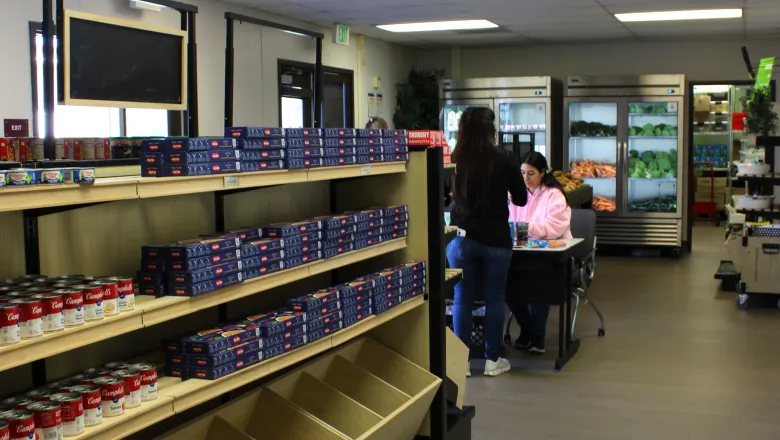
From choosing a major to navigating classes, college can be a challenge for even the most prepared student. But for those experiencing housing insecurity — those who are couch surfing, facing eviction, or lack a stable place to sleep — the path of higher education can feel nearly impossible.
Rising rents, unstable family dynamics, and economic pressures have made housing insecurity an increasingly common occurrence, even in a traditionally affluent area like Orange County.
“We see students in all kinds of situations,” says Dr. Susana Castellanos, Director of College Equity, Inclusion, and Access. “Some are living in their cars, some are bouncing around between different family members, while others are staying with friends short-term.”
Thanks to a growing network of support services, Saddleback College is working hard to ensure that no student is left behind simply because they don’t have a permanent address.
“Our job is to meet them wherever they’re at and make sure they know that they’re not alone and support is available,” says Dr. Castellanos.
Saddleback's Basic Needs Center is at the heart of this effort, a resource hub that provides students in need with essentials such as food, clothing, and hygiene products. It offers a no-cost shopping experience that mirrors a typical store, complete with shopping bags and a checkout counter, yet zero payment is required.
“We want students to feel like any other shopper, not like someone receiving assistance,” says Dr. Castellanos.
Beyond meeting basic needs, the Center provides something just as essential: personalized human support. When a student is referred, they begin with an intake session that involves a one-on-one conversation with a case manager. These discussions go far beyond forms and checkboxes; they’re about fully understanding every student’s unique situation.
Case managers then partner with campus and local resources to build a customized action plan. Whether it’s securing immediate housing and food assistance or coordinating long-term solutions, Saddleback takes a real, responsive approach to care that’s rooted in both follow-through and follow-up.
Saddleback’s Caring Campus initiative further reinforces this commitment by training its staff to provide stigma-free service, ensuring that every student feels seen, supported, and respected regardless of their circumstances.
Dr. Castellanos explains that one of the most significant barriers isn’t just access, it’s stigma: “It’s usually those students who need the most help who are often too afraid to ask or don’t know how,” she says. “That’s why we focus on making every experience as normal and welcoming as possible.”
How prevalent is housing insecurity? Sadly, the number of students arriving at the Basic Needs Center tells a story of exponentially increasing need: “A couple of years ago, we had about 2,700 visits per year. Now we’re seeing over 27,000,” says Dr. Castellanos. “And that number just keeps rising.”
To help keep up with the demand, Saddleback recently launched an emergency grant program, which offers up to $1,000 to students who are facing financial crises, ranging from past-due rent payments to urgent car repairs to medical emergencies. The college also offers short-term housing options like Airbnb vouchers and partners with community organizations like local churches that provide shelter or safe overnight parking.
Beyond immediate housing solutions, Saddleback also ensures its students have access to mental health care, academic support, transportation assistance, and help applying for public benefits like CalFresh and CalAIM.
“We always try to look at the whole student,” Dr. Castellanos says. “Because if someone’s basic needs are unmet, it’s really challenging for them to focus on their education.”
This is why Saddleback is working tirelessly to send a powerful message: no student should ever have to decide between a place to sleep and their education.
“Our goal is to create an environment where every student has the stability they need in order to succeed,” Dr. Castellanos says. “We don’t want any of our students ever to feel like they have to choose between school and survival.”
Through resourceful compassion and a continually growing network of campus and local support, Saddleback is constantly seeking out new ways of helping its students not only survive, but also thrive.
Dr.Castellanos urges any student in need to reach out: “Please don’t be shy or not speak up,” she says. “Talk to someone you trust on campus. If we don’t have the exact resource you need, we’ll connect you to someone who does. As hard as things may feel right now, you’re not alone. You belong here, and we will walk right beside you until you reach your goals.”
For more information, visit the Community Allocated Resources for Everyone (C.A.R.E) website or send us an email.